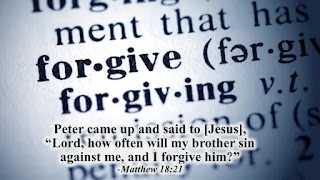Grace, mercy and peace be to you from God our Father and from our Lord Jesus Christ! Amen!
Dear brothers and sisters in Christ:
[Jesus
and Santa]
Jolly old St. Nicholas,
Lean your ear this way!
Don't you tell a single soul, What I'm going to
say;
Christmas Eve is coming soon, Now, you dear old man,
Whisper what you'll bring to me: Tell me if you
can. (Jolly Old St. Nicholas)
One of the complaints that
many Christians voice at this time of the year is that Christmas has become too
commercialized and too secularized.
When shopping or watching television, we are more likely to hear
“Happy Holidays” than “Merry Christmas.”
Today, far too many people observe the holy day of Christ Mass
without any acknowledgement of Christ at all.
For many, the day of Christmas is all about parties, presents, television
specials and NBA basketball games – without any reference to the reason we
celebrate Christmas – the incarnation of our Lord Jesus the Christ, who took on
our flesh to save us.
Sadly, the persona of Santa Claus gets more attention than Jesus
Christ.
Perhaps, this problem can begin to be corrected by understanding
where the legend of Santa Claus comes from and who the actual St. Nicholas was.
Now, most of us have heard of Santa Claus referred to as St. Nick
or St. Nicholas. In fact, that’s where the name comes from – Santa is another
word for Saint, and Claus is a shortened form in Dutch of the name Nicholas.
Today, Santa Claus has become its own legend. But, St. Nicholas
was a real person who lived during the third and fourth centuries. On this day,
December 6th, the Christian Church celebrates Nicholas.
[Nicholas
of Myra]
So, who was this St. Nicholas?
Nicholas was born into a wealthy family in Asia Minor, which is
modern-day Turkey. Having become a Christian, Nicholas chose not to pursue a life
of riches, but he instead devoted himself to the Church. He eventually became a
bishop of a city called Myra. Now, Myra was a decadent and corrupt city, and
Nicholas became well-known for transforming it by his pious hard work and
preaching the Word of Christ.
Nicholas was also known for his love for those in need, such as
poor widows and orphaned children. As bishop, he saw to it that the Church
worked to care for the needy. Perhaps his giving of gifts, especially to
impoverished children, is part of what formed the Santa Claus tradition.
Now, there is also one famous story about Nicholas that stands out
above the rest. There was a man in the city of Myra who had three daughters.
But he did not have enough money to provide his daughters with suitable property
necessary for marriage. At this time in history, it is likely that without
marriage, these girls could have ended up as prostitutes.
Nicholas heard about this and he became deeply troubled. So, he
decided to help, but help in a way where he would not draw attention to
himself.
So, Nicholas took from his own resources and prepared three bags of gold. On three straight nights, Nicholas went to this man’s house and threw a bag of gold into an open window – one bag of gold each night for the three daughters, which provided to be enough property for marriage. Eventually, it is likely that this is the story that led to the creation of Santa Claus – instead of throwing bags through an open window; the bags were dropped down a chimney.
Nicholas believed he was justified – made right with God – through
faith in Jesus Christ. And because of what Christ has done for him, he wanted
to spread Christ’s message in helping his neighbor in need. As the Apostle Paul
wrote in Galatians 2: “I have been crucified with Christ. It is no
longer I who live, but Christ who lives in me. And the life I now live in the
flesh I live by faith in the Son of God, who loved me and gave himself for me.”
(Galatians 2:20)
Now, there are many more accounts of Nicholas helping others. For
instance, once there were three men who were falsely accused of a crime and
sentenced to death and Nicholas worked to secure their freedom. It is also told
that Nicholas helped three sailors from drowning.
Nicholas lived his life as a man who wanted to help his neighbor, because
of what Christ has done to justify him.
In helping his neighbor, Nicholas was fulfilling what Christ said:
“You
shall love the Lord your God with all your heart and with all your soul and
with all your mind. This is the great and first commandment. And a second is
like it: You shall love your neighbor as yourself.” (Matthew 22:37-39)
It is interesting that in these stories of Nicholas, the number
three keeps coming up – three daughters, three falsely accused men, three
sailors.
Nicholas was also a staunch defender of the three-in-one – the
Triune God – the Father, the Son, and the Holy Spirit, which he proclaimed.
In fact, St. Nicholas was one of the bishops present at the
Council of Nicaea in A.D. 325, which was met to combat heresy or false
teachings that were leading people away from Jesus. This council also met to confirm
an essential truth about the Trinity – that Jesus Christ is truly God and truly
man. It was from this council that we received the Nicene Creed, which the
entire Christian Church accepted as a true witness of God’s Word.
You see, Nicholas was a defender of the true Christian faith – the
faith that proclaims that Jesus Christ is the only Savior from sin, death and
the devil.
Nicholas preached Jesus crucified and risen, baptized people into
the one true faith, absolved people of their sins in Jesus’ name, and fed them
with the life-giving body and blood of Jesus for the forgiveness of sins.
This is the real St. Nicholas. He wasn’t taking attention away from Jesus. He was a preacher drawing everyone’s attention to Jesus; for he knew that his people were both saints and sinners and in desperate need of Christ’s forgiveness and mercy.
[Jesus
– the True Gift]
We give attention to the generosity of Nicholas because it was the
love of Jesus Christ that was working through him in his life.
That love of Christ that was at work in Nicholas is at work also
in you. For in your Baptism you were “crucified with Christ, and you no longer
live, but Christ lives in you and through you.”
The Lord is working in you so that his boundless love, which has
been shown to you, might spill over to others in the giving of yourself and in
the giving of gifts – not that you can feel good about yourself or draw
attention to yourself, but giving that is anonymous and entirely for the good
of others, like a bag of gold through an open window at night.
That’s why Christians too, when giving an anonymous gift, might
refer to gifts being given by Santa Claus – St. Nicholas.
For such a gift is given in a spirit that reflects the love of
Christ as Nicholas did, and ultimately it seeks to give glory not to ourselves,
but to God, who is the true giver of every good and perfect gift.
Indeed, every gift that we give is a sign of that greatest gift of
all, the Christ Child in the manger – given to us almost anonymously. But
hidden within the wrapping of his lowly humanity dwelt all the fullness of the
Godhead bodily, full of grace and mercy. Jesus is love in the flesh for you.
You see, there is no greater gift than knowing we are forgiven of
our sins and we will live forever with Christ through faith in Him. And, we say
with Nicholas and all the saints in heaven, “Amen! Come Lord Jesus! Come
quickly!” as we await His Second Advent.
The peace of God which surpasses all understanding, keep your
hearts and minds in Christ Jesus, our Lord. Amen.





